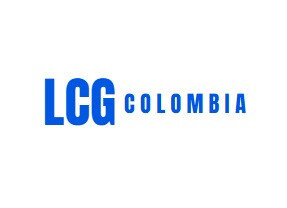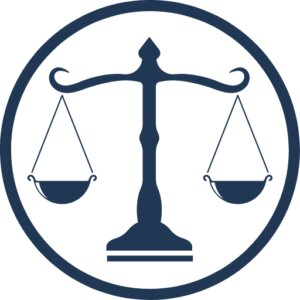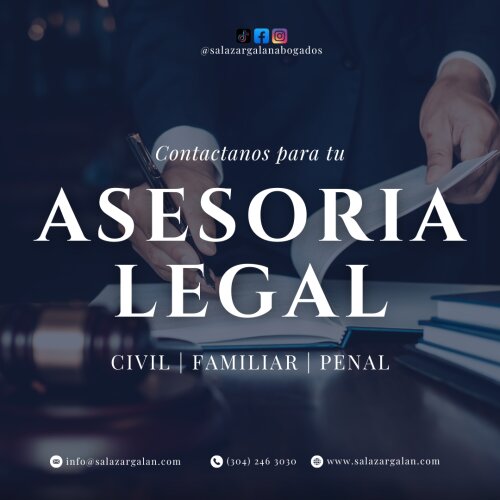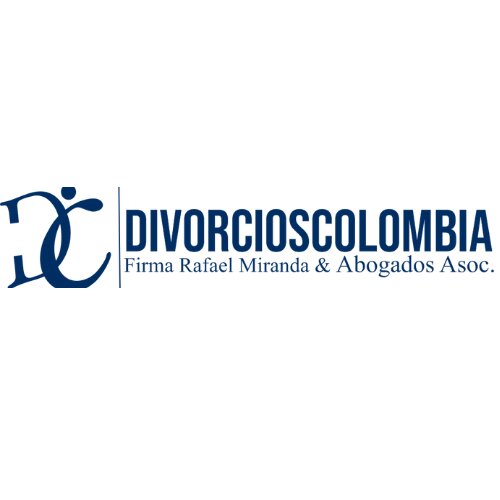Best Collaborative Law Lawyers in Colombia
Share your needs with us, get contacted by law firms.
Free. Takes 2 min.
Free Guide to Hiring a Family Lawyer
Or refine your search by selecting a city:
List of the best lawyers in Colombia
About Collaborative Law in Colombia
Collaborative Law in Colombia is an emerging legal practice aimed at resolving disputes outside of traditional court proceedings. This method encourages constructive cooperation between parties and their legal representatives to reach a mutually satisfactory agreement. It is commonly applied in family law cases, especially those involving divorce, child custody, and property settlements. Unlike litigation, Collaborative Law focuses on negotiation, mediation, and conflict resolution, ensuring a quicker, less adversarial, and more cost-effective process.
Why You May Need a Lawyer
Given the complex legal and emotional issues involved in disputes, especially familial ones, consulting a lawyer trained in Collaborative Law can be crucial. Here are some common situations where a lawyer’s assistance might be beneficial:
- Divorce or Separation: Requiring equitable division of assets and property.
- Child Custody and Support: Delicate matters involving children need careful negotiation to ensure their well-being.
- Elder Law: Situations involving guardianship or the care of aging family members.
- Business Partnerships: For resolving disputes that could impact professional relationships and business operations.
- Pre- and Post-Nuptial Agreements: To clearly define the terms of any financial arrangements between partners.
Local Laws Overview
Colombian law provides a framework for families and individuals to engage in Collaborative Law practices. Some key aspects include:
- Legal Recognition: Collaborative Law is increasingly recognized and encouraged as a viable alternative to litigation, especially for family-related disputes.
- Confidentiality: The process is confidential, and discussions or agreements reached cannot later be used in court, fostering an open and honest negotiating environment.
- Participation Agreement: All parties and their lawyers sign an agreement that if the process fails, they will not represent them in any subsequent litigation related to the dispute.
- Focus on Amicability: The law encourages solutions that benefit both parties, fostering respectful communication and promoting long-term relations, especially in cases involving children.
Frequently Asked Questions
What is Collaborative Law?
Collaborative Law is an alternative dispute resolution process where parties and their lawyers work together to resolve conflicts amicably without going to court.
How does Collaborative Law differ from traditional litigation?
Unlike traditional litigation, Collaborative Law focuses on mutual respect, open communication, and voluntary information exchange, avoiding the adversarial nature of court battles.
Can Collaborative Law be used in all types of legal disputes?
It is primarily used for family law disputes but is expanding into other areas like business conflicts and employment disputes.
Are agreements reached through Collaborative Law legally binding?
Yes, agreements are formalized in written contracts, which are legally binding and enforceable in court.
Is Collaborative Law faster than going to court?
Generally, yes. The process usually takes less time than court proceedings due to its non-adversarial nature and focus on direct communication.
What happens if Collaborative Law negotiations fail?
If negotiations fail, the lawyers involved in the process must withdraw, and new counsel is hired for potential litigation.
How do I choose a lawyer specialized in Collaborative Law?
Look for a lawyer certified in Collaborative Law, with experience and a proven track record in amicable dispute resolution.
Are there specific costs associated with Collaborative Law?
Costs can vary, but Collaborative Law often is less expensive than litigation as it involves fewer proceedings and a focus on rapid resolution.
Is participation in Collaborative Law voluntary?
Yes, all parties must voluntarily agree to the Collaborative Law process. This agreement is essential for the success of the negotiation.
What role do other professionals play in Collaborative Law?
Financial advisors, child specialists, and mental health professionals may be involved to provide expertise and facilitate the process.
Additional Resources
Several resources are available for those seeking assistance or more information on Collaborative Law in Colombia:
- Colombian Bar Association: Provides a directory of lawyers certified in Collaborative Law.
- Family Law Network: Offers educational materials and support for families undergoing legal disputes.
- Ministry of Justice: Supplies information on alternative dispute resolution mechanisms, including Collaborative Law.
- Mediation Centers: Various centers throughout Colombia offer mediation services and resources.
Next Steps
If you decide that Collaborative Law is the right path for your legal issue, consider the following steps:
- Conduct research to find qualified Collaborative Law practitioners in your area.
- Arrange an initial consultation to discuss your situation and understand the potential costs and outcomes.
- Prepare by gathering all relevant documents and information related to your case.
- Be open and honest about your goals and expectations for the process to ensure successful negotiations.
By following these steps and utilizing available resources, you can navigate your legal situation effectively with the guidance of Collaborative Law in Colombia.
Lawzana helps you find the best lawyers and law firms in Colombia through a curated and pre-screened list of qualified legal professionals. Our platform offers rankings and detailed profiles of attorneys and law firms, allowing you to compare based on practice areas, including Collaborative Law, experience, and client feedback.
Each profile includes a description of the firm's areas of practice, client reviews, team members and partners, year of establishment, spoken languages, office locations, contact information, social media presence, and any published articles or resources. Most firms on our platform speak English and are experienced in both local and international legal matters.
Get a quote from top-rated law firms in Colombia — quickly, securely, and without unnecessary hassle.
Disclaimer:
The information provided on this page is for general informational purposes only and does not constitute legal advice. While we strive to ensure the accuracy and relevance of the content, legal information may change over time, and interpretations of the law can vary. You should always consult with a qualified legal professional for advice specific to your situation.
We disclaim all liability for actions taken or not taken based on the content of this page. If you believe any information is incorrect or outdated, please contact us, and we will review and update it where appropriate.
Browse collaborative law law firms by city in Colombia
Refine your search by selecting a city.














